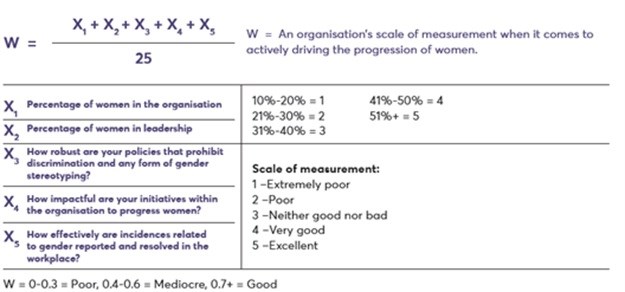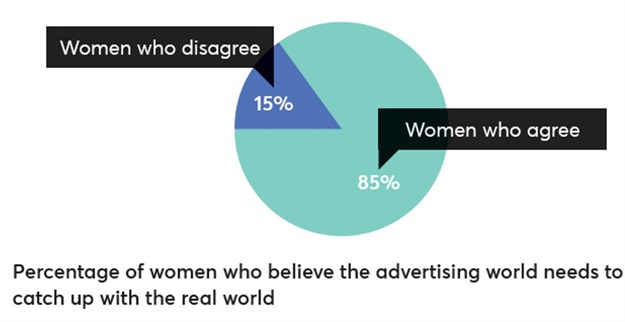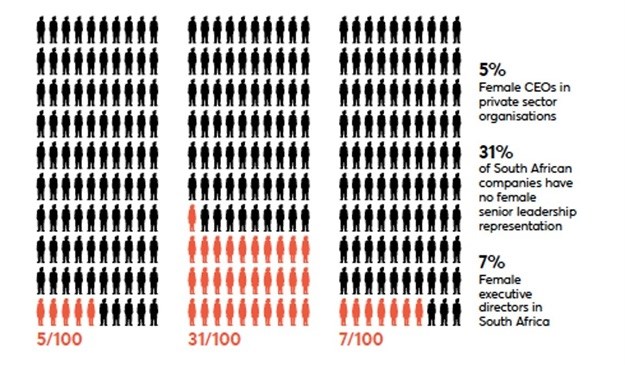
Top stories






More news


Marketing & Media
Ads are coming to AI. Does that really have to be such a bad thing?














A recent report released by Ernst & Young noted that there are fewer women running big companies than men named John.
Traditionally, society has handed power to men and granted women the supporting roles. These norms have contributed to the barriers and hurdles that affect women in business, and to the stereotypes and social constructs that remain prevalent in many industries, including in the communication and advertising industries.
This is concerning and limiting considering that the female economy is currently worth around US $28tn. It is a market that has exceptional potential, especially if matched to an increase in women in the workforce and a decrease in the gender pay gap.
The world may be built for men, but companies that are prepared to innovate for women will harness 75% of the global discretionary spend by 2028. Countries like Sweden and the United Kingdom have already started to crack down on advertising that perpetuates sexist stereotypes and South African brands need to pay attention or risk losing relevance. According to the J. Walter Thompson Female Tribes initiative, 85% of women believe the advertising world needs to catch up with the real world.

For example, advertisements for household products were, and still are, famous for showing women who don’t work and only have stains to worry about on a Monday morning. The social construct of women deferring to men for significant decisions and only concerning themselves with those that fulfil the “wife and mother” narrative is still perpetuated to a degree. There has been progress, but these age-old stereotypes are remain prevalent.
There are brands that have engaged with the female economy and are succeeding through shifting social constructs. Brands such as Audi through their ‘Q2 #untaggable’ campaign and Castle Lite through their ‘women of South Africa, Castle Lite owes you an apology’ are two powerful, local, cases in point.
#HoldMyBeer pushed us to take a long hard look at the role we play in shaping cultural norms. From now #CastleLite promises to be better, to stop the exclusion & unlock more inclusion because women should do anything, be anything, drink anything. #InternationalWomensDay pic.twitter.com/fIr34SAERX
— CastleLiteSA (@castlelitesa) March 8, 2018
There is a need for more organisations to apply their minds to understanding women and their roles in society, rather than prescribing what they should be. This begins with acknowledging the significant commercial opportunity women present and shaping strategy accordingly.
Research shows that companies with highly engaged workers outperform their competitors by 147% in earnings per share. Interestingly, Gallup reports 87% of employees globally feel disengaged. Engagement isn’t just a buzzword; it’s potential, stability, sustainability and fulfilment. It is low staff turnover and skills retention and the potential to build intrapreneurial spirit. It also relates to how organisations are set to catch and keep the attention of the millennial employee. What businesses need is a more human approach and women introduce precisely that.
Numerous studies reveal how women tend to ignite better performance in their teams, drive development, create a supportive environment and give their staff recognition in the workplace. As a result, employees with a female manager are more likely to be engaged.
Research shows that in Africa only 5% of organisations in the private sector have a female chief executive officer (CEO), and 31% of South African companies have no female representation in any leadership role. 60% of all students in higher education are women, yet we don’t see this representation in business. It is critical to find out where this drop-off occurs in their career trajectory.

The social constructs and stereotypes around gender are deeply entrenched in men and women alike, and businesses hold the influence to play an active role in breaking down systemic bias. As businesses grow they should be creating more opportunities for both genders and at the moment, this is not necessarily the case. We all need to understand and accept that interaction with individuals cannot be generalised based on gender and outdated perceptions. But it is men who can potentially shift the old conversations and stereotypes away from the workplace with their commitment to this level of change. Empowering women does not necessitate the disempowering of men.
The Yellowwood White Paper ‘The Female Equation: Are Women Better for Business’ can be downloaded on the Yellowwood website.